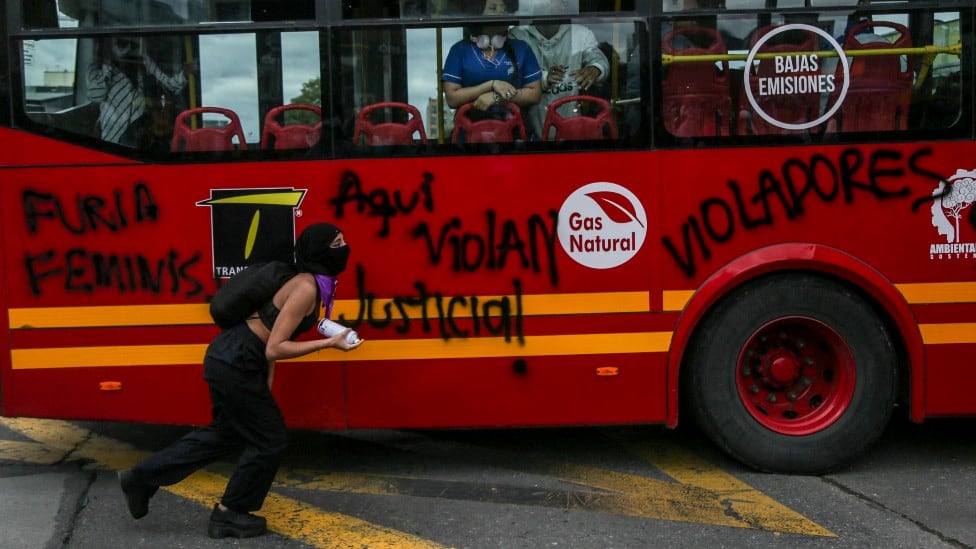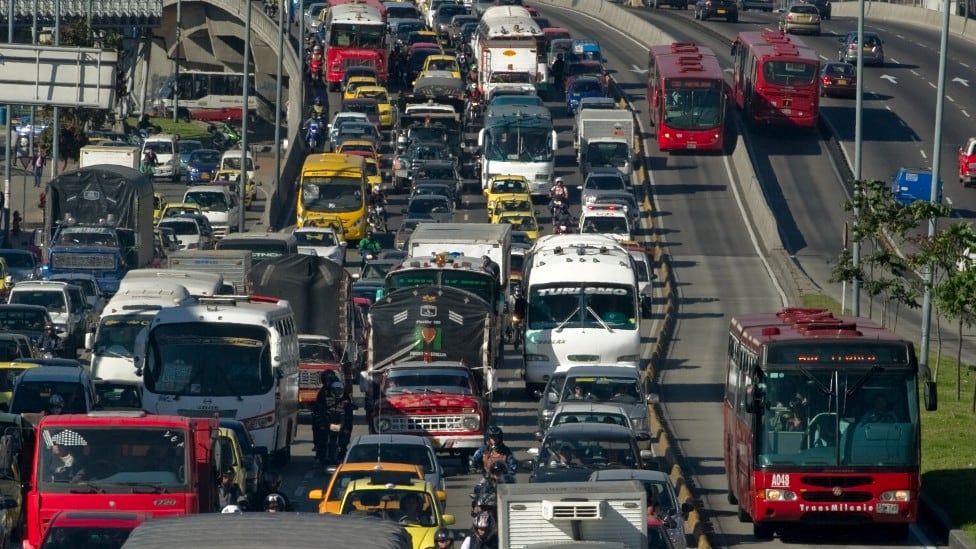:quality(75)/cloudfront-us-east-1.images.arcpublishing.com/elcomercio/VLK3FHLZV5FKNK2N2UBMDS4YPM.png)
On October 31, Hilary Castro, a 17-year-old woman from Bogota, was robbed at a bus station. transmileniothe public transport service of the Colombian capitaland then, as reported, sexually harassed.
LOOK: They find the alleged rapist of a minor in TransMilenio de Bogotá dead: it would be homicide
The next day, Castro wanted to report it, but the State entities, he said, rejected his complaint; first because he was a minor, then because the alleged stalker was of legal age and then “because it’s already after 5 PM and it’s not an emergency case.”
His story on social networks, however, went viral and generated strong disturbances in Bogotá last week against the criticized Transmilenio, where more than 70% of women, according to surveys, say they have been a victim or have seen sexual harassment. Three stations were vandalized by protesters.
Within the framework of this case, on Sunday the police arrested Juan Pablo González and accused him of violent carnal access and qualified and aggravated robbery. A few hours later González, who denied the charges, was found dead in a public attention unit of the Prosecutor’s Office.
The authorities, according to local media reports, They are investigating whether his death was homicide or suicide. Information has been leaked that his body had injuries.
If Castro’s case had already generated outrage among thousands of Colombians, González’s death increases the prominence of an event that adds to the episodes of sexual harassment that occur daily in the Bogotá transportation system, questioned by the absence of security and overcrowding.

Hillary’s story
“I saw that a man got off at the same station as me, I started looking everywhere and the only thing I did was try to walk faster, because this was a station where there was not a single policeman or a single guard” Castro explained in a video on Instagram.
“This man comes running after me and threatens me with a knife, tells me to give him everything, starts searching me and can’t find my cell phone and starts saying a lot of obscene things to me,” he continued.
Castro explained between sobs that he was in shock and that he was unable to respond to the situation. According to her account, the man grabbed her and took her out of the station. After removing her cell phone from her breasts, where she had hidden it, he led her behind the station, pulled down her pants and “forced her to perform oral sex on him.”
Two boys who noticed the incident took her in and lent her a phone to call her mother. After a day locked in her room, Castro decided to denounce him.
With a gesture of disbelief, the woman from Bogotá then explained how her complaint was rejected in one attention center because she was a minor and then rejected in another because her alleged assailant was of legal age.
“I want to make this case public because I don’t want it to happen to any woman (…) I’m tired of judicial processes re-victimizing us and I want to call on the Mayor’s Office to see how safe our public transportation is,” Castro said. .

Forced to use the Transmilenio
On October 21, Juan Pablo González was arrested by the police in a Bogotá park when some women denounced he was showing his genitals.
The mayor of Bogotá, Claudia López, commented in the video released by Blu Radio: “Until when? What else has to happen for the Ministry of Justice and Congress to understand that ensuring justice instead of impunity for the robbery, the harassment and other alleged ‘misdemeanors’ should be their priority? And for prosecutors and judges to apply the rules they already have?”
González was released after the arrest on October 21 and 10 days later the incident with Castro allegedly occurred.
“Impunity is the missing link in security“, López also wrote, who declares herself a feminist and has promoted different protocols in the Mayor’s Office to prevent and investigate cases of sexual abuse.
Official figures report that about 80% of cases of gender violence go unpunished in Colombia.

A 2014 survey conducted by YouGov among more than 6,550 women and specialists in gender and urban planning established that the Transmilenio is the most dangerous transport system in the world for women. Mexico City and Lima systems were next in the survey.
“Public transport is still a space where sexual harassment and abuse as an expression of gender-based violence have not yet been addressed,” says a detailed ECLAC report from 2015 on the subject.
“The invisibility of the problem has hindered the collection of information and the generation of sufficient information. This undermines the possibility of designing and implementing more efficient public transport policies that ensure the mobility of women in conditions of equality and safety.”
Indeed, In the Colombian Penal Code there is no criminalization of sexual harassment in public transporteither. The Supreme Court of Justice maintains that, if there is no obvious and repetitive sexual desire, what happens on public transport is not sexual harassment but “injury by way of fact”.
More than half of Bogota citizens use the Transmilenio to go to work and a third of women, according to a UN survey, say they prefer not to use it for fear of sexual abuse.
Source: Elcomercio
I, Ronald Payne, am a journalist and author who dedicated his life to telling the stories that need to be said. I have over 7 years of experience as a reporter and editor, covering everything from politics to business to crime.






